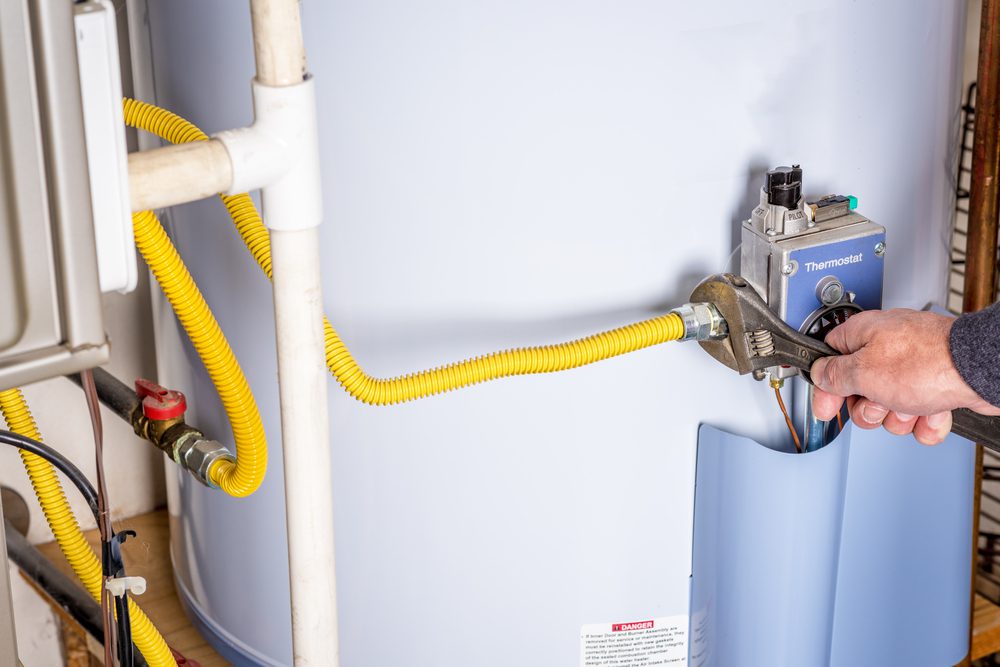Your Guide To Water Heater Issues
Your Guide To Water Heater Issues
Blog Article
This article in the next paragraphs in relation to Water Heaters Problems is fairly informative. Read it yourself and figure out what you think of it.

Visualize starting your day without your routine warm shower. That already establishes a bad tone for the remainder of your day.
Every house requires a reputable water heater, however only a few understand just how to handle one. One very easy way to keep your hot water heater in top shape is to look for faults frequently and also repair them as soon as they appear.
Keep in mind to shut off your hot water heater before smelling around for faults. These are the water heater faults you are probably to run into.
Water too warm or too chilly
Every hot water heater has a thermostat that identifies exactly how warm the water obtains. If the water coming into your house is as well warm regardless of setting a convenient maximum temperature level, your thermostat could be faulty.
On the other hand, too cold water may be due to a failed thermostat, a broken circuit, or improper gas circulation. As an example, if you make use of a gas hot water heater with a busted pilot burner, you would certainly obtain cold water, even if the thermostat is in ideal problem. For electrical heaters, a blown fuse might be the offender.
Not enough warm water
Hot water heater come in lots of sizes, depending upon your warm water demands. If you lack warm water before everybody has actually had a bath, your hot water heater is too little for your family size. You need to consider setting up a bigger hot water heater container or opting for a tankless water heater, which uses up much less room and is a lot more long lasting.
Weird sounds
There go to the very least 5 kinds of noises you can hear from a water heater, yet one of the most usual interpretation is that it's time for the water heater to retire.
To start with, you ought to be familiar with the normal sounds a water heater makes. An electrical heating unit might sound various from a gas-powered one.
Standing out or banging noises typically imply there is a slab of sediment in your containers, as well as it's time to cleanse it out. On the other hand, whistling or hissing audios may simply be your valves letting some stress off.
Water leakages
Leakages might come from pipes, water connections, shutoffs, or in the worst-case circumstance, the tank itself. With time, water will certainly rust the tank, and find its way out. If this takes place, you need to change your water heater asap.
Nevertheless, before your adjustment your entire tank, make sure that all pipelines are in location which each shutoff works flawlessly. If you still require assistance identifying a leakage, call your plumber.
Rust-colored water
Rust-colored water means one of your hot water heater components is rusted. It could be the anode pole, or the storage tank itself. Your plumber will have the ability to determine which it is.
Lukewarm water
Regardless of how high you established the thermostat, you won't obtain any hot water out of a heater well past its prime. A water heater's performance may decrease with time.
You will certainly likewise get warm water if your pipelines have a cross link. This means that when you activate a tap, hot water from the heating unit streams in alongside normal, cold water. A cross connection is very easy to place. If your hot water faucets still run after shutting the hot water heater valves, you have a cross connection.
Discoloured Water
Corrosion is a major root cause of unclean or discoloured water. Deterioration within the water container or a stopping working anode rod can cause this discolouration. The anode pole secures the tank from rusting on the inside as well as need to be checked yearly. Without a rod or an effectively operating anode rod, the warm water swiftly rusts inside the tank. Contact an expert hot water heater professional to identify if changing the anode pole will repair the problem; if not, change your hot water heater.
Conclusion
Preferably, your hot water heater can last 10 years before you require a modification. However, after the 10-year mark, you may experience any one of these faults a lot more consistently. At this moment, you ought to add a new water heater to your budget.
How To Troubleshoot 3 Common Water Heater Problems in Twin Cities
The Water Heater Is Leaking
A leaky cold water inlet valve A loose pipe fitting A leaky temperature and pressure relief valve A corroded anode rod A cracked tank Turn Off Your Water Heater:
Shut off your gas water heater by turning the gas valve on the unit to the “OFF” position. Shut off your electric water by switching its power off at your electrical panel. Look for a two-pole breaker labeled “water heater” and turn it to the “OFF” position. Move the ball valve connected to the water heater to be perpendicular to the piping at a 90° angle. Look for the Leak:
Depending on whether the water is coming from the tank's top or bottom, you’ll want to look for the leak in different locations.
If the leak comes from the top of the tank, carefully look for water escaping from the cold water inlet valve or loose pipe fittings. Rusted hot and cold water valves can have loose connections with the tank, with water leaking out of them.
https://mspplumbingheatingair.com/blog/how-to-troubleshoot-3-common-water-heater-problems
We hope you enjoyed reading our section about Water Heater Repair and Troubleshooting. Thanks a lot for spending some time to read through our blog. Are you aware of another individual who is inquisitive about the niche? Please feel free to share it. Thank you so much for going through it.
Quality fix? Call! Report this page